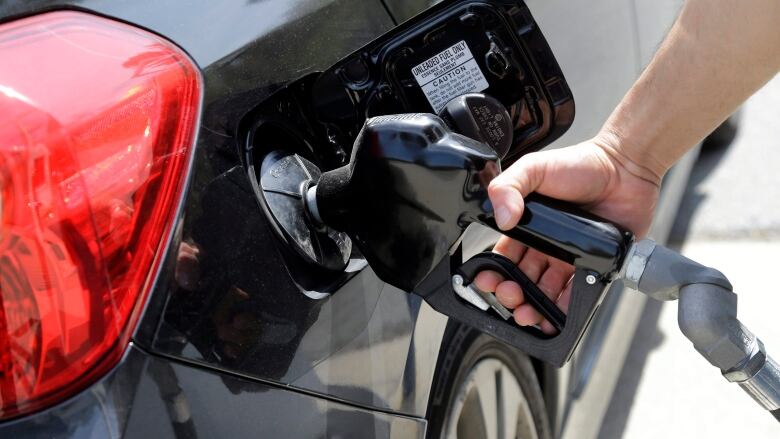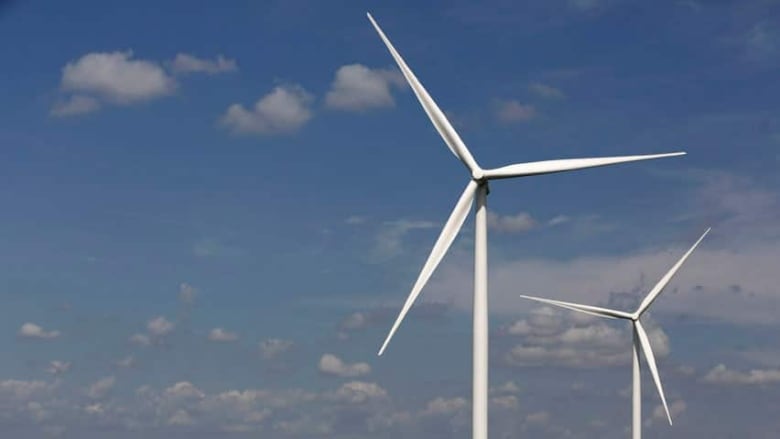P.E.I. should create carbon tax, says Atlantic Chamber of Commerce
More advantageous for P.E.I. government to bring in own carbon tax than one nationally

P.E.I. should create its own carbon tax so the proceeds flow locally, rather than be forced to pay into a national carbon tax, says the Atlantic Chamber of Commerce.
This is just one of several recommendations thechamber made in its submission on P.E.I.'sClimate Change Mitigation discussion document released last month.
The chamber represents almost 1,500 Island businesses.
1. Put a provincial price on carbon
"The feedback that I'm getting from our membership is that 80 per cent of the country is already covered by some kind of carbon tax and our federal government is indicating that a price of carbon is in the offing," said Glenn Davis, vice-president of policy with the Halifax-based Atlantic Chamber of Commerce.
"Our viewpoint is that each of the provinces that do not have a tax, if they go that route it would be better that it generated revenues within the province itself versus having something imposed at the federal level."
2. More ambitious emissions reductions targets
The chamber would like P.E.I. to set emissions targets that go beyond what eastern premiers and New England governors set a year ago. A regional commitment was made todecreasecarbon pollution by between 35 and 45 per cent below 1990 levels by 2030.
Davis said P.E.I. should try to go beyond that, including setting specific targets for some of the higherpolluting sectors, such as agriculture and transportation. Those two sectors are responsible for 23 and 42 per cent of provincial emissions respectively, according to the discussion document.
Davis said rebates for plug-in electric vehicles would be one possiblewayto reduce transportation emissions.
"Certainly anything that we can do to motivate people to purchase those kinds of technologies is a positive step."
3. Energy efficiency

"We strongly suggest the emphasis on energy efficiency. The cheapest form of energy is the energy you don't use. Doesn't cost you anything," said Davis, adding the focus should be reducing both consumer and industrial use.
However, the chamber isn't convincedthe province needsa stand-alone energy efficiency utility, something recommended in P.E.I.'s second draft of a new Energy Strategy.
"More bureaucracy is not necessarily needed," said Davis.
"The question would be how much benefit from creating a separate entity. That would have to be explored."
4. Adopt the national building code
Currently, the National Building Code only applies to construction in Charlottettown, Summersideand Stratford, P.E.I., but the chamber would like that codeto be adopted province-wide.
Davis said there is also hope that Ottawa would beef up the codein terms of its energy efficiency requirements.
"We see this simply as an opportunity to set the standards within the country, let alone the provinces for new construction."
5. Make wind energy storage a priority

The chamber believes wind energy expansion is one way P.E.I. can increase its reduction ofgreenhouse gas emissions, but for that expansion to be successful wind energy storage technology will have to be utilized.
"Wind energy is not dependable on demand, and there are opportunities to explore new technologies," said Davis.
"And the fact that we can produce wind energy in a clean manner, if we could expand the availability of storage it could be drawn down in those times when peak demand occurs and not have to access more polluting sources of energy, either at thermal plants."
Davis believes "green economy"business opportunitieslike thiscould beaneconomic advantage that comes from climate change.
"The concept of being ahead of the curve and being engaged early on presents the opportunity to be leaders and experts in certain areas of climate change mitigation and adaptation."
- MORE P.E.I. NEWS | Dead fish found in Roseville, P.E.I., watershed
- MORE P.E.I. NEWS | Here's how Islanders celebrated the Hip: Dancing, laughter, tears












_(720p).jpg)


 OFFICIAL HD MUSIC VIDEO.jpg)
.jpg)



























































































